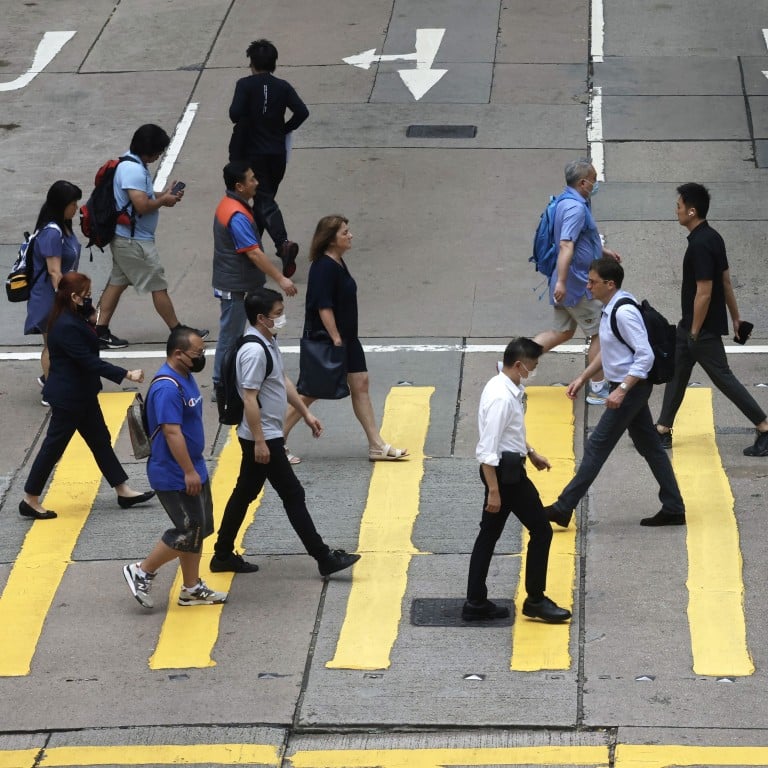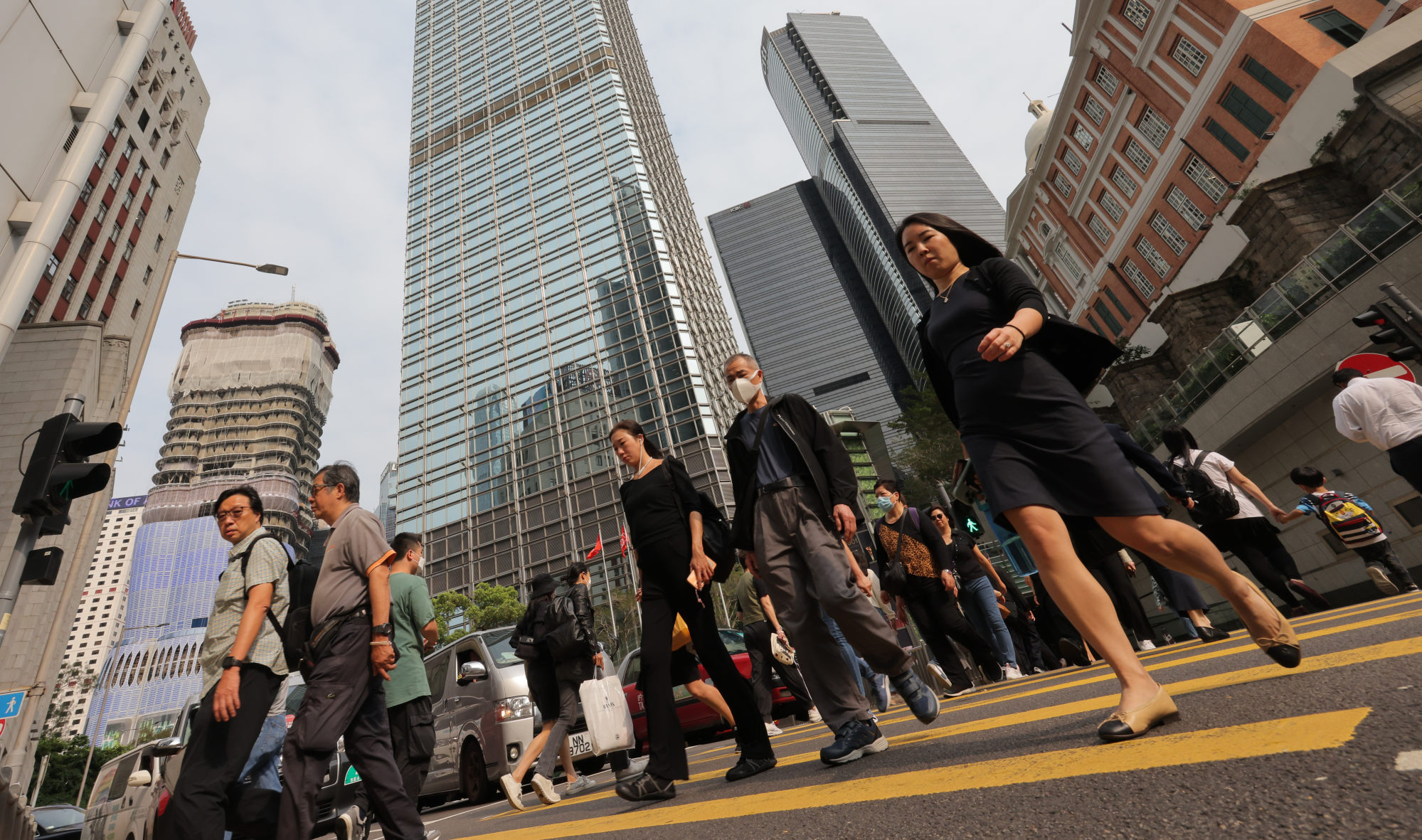
John Lee policy address 2023: Hong Kong to relax visa rules for Vietnam, expand talent schemes to include country, Laos and Nepal
- Chief executive also announces that foreign staff of overseas firms registered in Hong Kong will be able to apply for single visa allowing multiple entries to mainland
- Hong Kong relaxes requirements for Vietnamese visitors applying for multi-entry visa for business and travel with immediate effect
Hong Kong will relax visa policies for three Asian nations, easing requirements for short-term visitors from Vietnam and expanding talent schemes to include skilled workers from that country as well as Laos and Nepal.
He said the move was aimed at attracting more international companies to set up their headquarters in Hong Kong, adding the government would speed up the processing of such visas.
6 key takeaways from Hong Kong leader John Lee’s policy address
The British Chamber of Commerce in Hong Kong welcomed the announcement on new visa arrangements, saying it addressed one of the barriers foreign business travellers faced when entering the mainland.
Lee also said on Wednesday that Hong Kong would relax requirements for Vietnamese visitors applying for a multi-entry visa for business and travel with immediate effect.
According to a government source, the multiple-entry visa will allow Vietnamese travellers to visit the city for a maximum of 14 days each time over a two-year period.
To be eligible, travellers must have visited two or more countries at least three times in the past three years or have studied, worked or received training in Hong Kong in the past two years, the source said.
The Vietnamese consulate in Hong Kong said the move was a welcome decision “long-awaited and long-desired” by businesses and people on both sides.
“As the door is now wide open, it is important to take action both at the official and business levels to translate the policy into reality, to match the availability of talent in Vietnam with the demand by the Hong Kong economy,” said Pham Binh Dam, the consul general.
He added it was crucial the wider public in Vietnam be made aware they could now look for job opportunities and establish businesses or travel to Hong Kong for leisure with easier visa access.
Winnie Lam Wing-yee, general secretary of the Hong Kong Business Association Vietnam, also said the visa relaxation was much welcomed.
“Hong Kong and Vietnam have always had an awkward relationship, due to the history of Vietnamese refugees in Hong Kong and the issue of illegal immigrants which is still present,” she said.
“However, the strict visa requirements meant some [global] companies like McKinsey & Company and Jardine Matheson were not able to send their Vietnamese staff for training at the Hong Kong office and had to send them to Thailand or Singapore instead.”
As it happened: Hong Kong halves non-resident buyers’ stamp duty in policy address
She said the country had a huge pool of young, skilled talent who could speak English, while many Vietnamese were interested in travelling to Hong Kong, which could boost the city’s tourism industry.
Police said 848 people suspected of being in the city illegally were arrested in the first nine months this year, including 266 from Vietnam, which topped the list.
Lee also announced that Hong Kong would open its doors to talent from Vietnam, Laos and Nepal for employment, training or studying in the city’s eight public universities.
The three countries were previously excluded from the city’s Quality Migrant Admissions Scheme, which aims to attract highly skilled people to work in Hong Kong without needing to secure employment before relocating.
In his address, Lee also said eight more universities would be added to the existing list of 176 institutions in a top talent scheme to attract graduates, including some of the world’s leading hospitality schools.

Non-local students joining institutions under the Vocational Training Council would also be able to stay in Hong Kong for one year to seek employment after their graduation under a pilot programme, he said.
Lingnan University human resources scholar Frankie Lam King-sun called the visa relaxation for Vietnam, Laos, and Nepal a “good move”, saying there were opportunities for tapping into the growing industrial output and young talent of those countries.
“Some industries have shifted from mainland China to these countries in recent years,” he said.
“If we attract talent [from those countries] to Hong Kong, that will create some synergy in terms of logistics, manufacturing and administration.”
He also lauded the announcement of a two-year pilot scheme allowing non-local vocational students to remain in the city for a year post-graduation to look for jobs.
“I think it could be rather impactful, because it could attract a lot of trade or profession-related graduates in the industries that have been crying for talent.”
Wen Wan, head of talent and rewards in Hong Kong for professional services firm WTW, agreed the new arrangement could help address shortages in skilled trades, but that it did not go far enough to address other pressing issues.
“The direction seems to be focused on junior talent,” Wan said. “We know that there is a crunch in mid-level and experienced professional talent, because those are the ones leaving Hong Kong.”
Hong Kong lost 210,000 workers between early 2019 and the end of 2022. A survey by the Hong Kong General Chamber of Commerce in April found that 74 per cent of city companies had struggled with labour shortages.
In response, the government launched a large-scale talent drive to help offset the outflow, including the Top Talent Scheme in December.
Anthony Lau Chun-hon, former executive director of the Hong Kong Tourism Board, will also head a newly announced office for Hong Kong Talent Engage by the end of the month, which will facilitate recruitment strategies.
According to Lee, under the city’s various admission schemes, about 100,000 applications have been approved. So far, 60,000 have arrived in the city, surpassing the government’s earlier target of 35,000.


